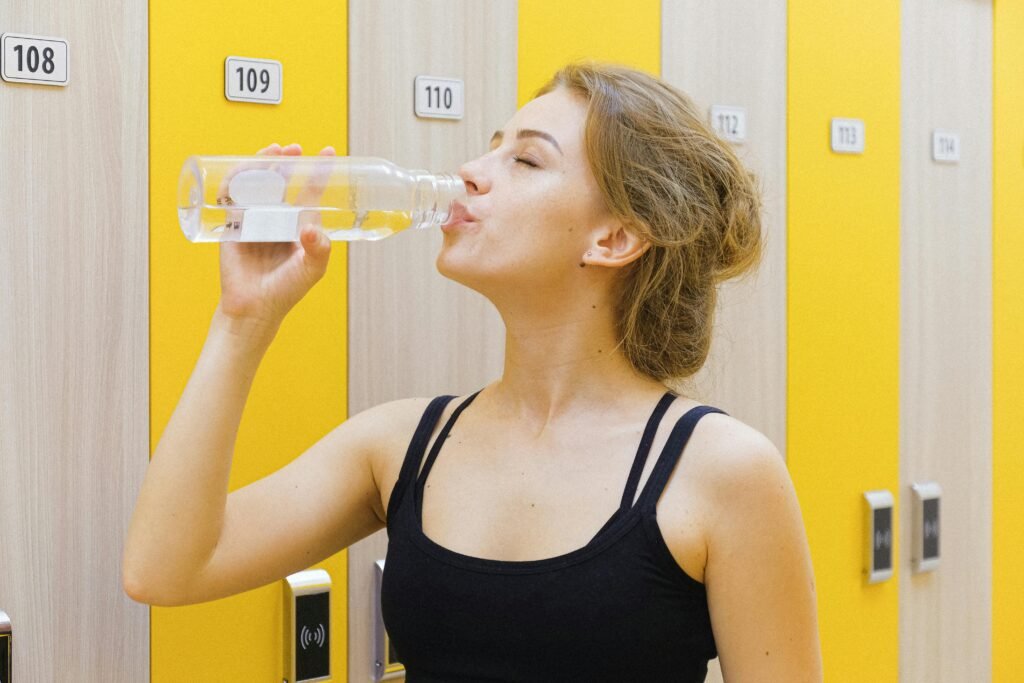Is drinking 4 liters of water every day undesirable?
In the domain of wellbeing and health, the exhortation to drink a lot of water is basically universal. Be that as it may, there’s a scarcely discernible difference between remaining hydrated and going overboard. One inquiry that frequently emerges is whether consuming a significant sum, similar to 4 liters per day, might actually be hurtful to your wellbeing. We ought to dive into this subject and separate truth from fiction.

The Significance of Hydration
Water is evidently fundamental for our bodies to ideally work. It manages internal heat level, supports absorption, transports supplements, and flushes out poisons. Sufficient hydration is indispensable for generally speaking prosperity and is frequently connected with more clear skin, worked on mental capability, and better actual execution.
Grasping Suggested Admission
The suggested day to day admission of water differs in view of a few elements, including age, orientation, weight, environment, and movement level. The broadly refered to rule is to drink around 8 glasses of water each day, which is approximately 2 liters. Be that as it may, this is an overall proposal and not a one-size-fits-all standard.
Possible Dangers of Overhydration
While remaining hydrated is urgent, drinking unnecessary measures of water can prompt a condition known as hyponatremia, or water inebriation. This happens when the equilibrium of electrolytes in the body is disturbed, especially sodium levels become hazardously low. Symptoms of hyponatremia consolidate affliction, headaches, confusion, and in serious cases, seizures and obviousness.
Tracking down the Equilibrium
For most people, drinking 4 liters of water a day is pointless and might actually prompt overhydration. All things considered, it’s critical to pay attention to your body’s signs and drink when you’re parched. Moreover, taking into account factors, for example, environment and actual work level can assist with deciding your singular hydration needs.

Indeed, it’s feasible to pass on from drinking an excess of water, a condition known as water inebriation or hyponatremia.Hyponatremia happens when the harmony of electrolytes in your body, particularly sodium, is upset by pointless water confirmation.
In extreme cases, drinking a lot of water in a brief timeframe can weaken the sodium content in your blood to hazardously low levels, prompting enlarging of the synapses (cerebral edema), seizures, trance state, and even demise.
The specific measure of water that can cause deadly water inebriation changes from one individual to another and relies upon elements like weight, age, generally wellbeing, and individual resistance. In any case, it’s for the most part viewed as uncommon for solid people to pass on from drinking an excess of water under ordinary conditions.
Harmfulness from water utilization normally happens when somebody polishes off an exceptionally huge amount of water over a brief period, frequently because of outrageous exercises like right of passage ceremonies, inordinate water drinking challenges, or certain ailments where the body’s capacity to direct water balance is compromised.
Much of the time, remaining hydrated by savoring water reaction to thirst and staying away from unnecessary admission in a brief period is critical to keeping a good overall arrangement and forestalling water inebriation. On the off chance that you’re worried about your hydration levels or have explicit medical issue, it’s in every case best to talk with a medical services proficient.
Fitting Hydration to Your Requirements
Instead of focusing on a particular volume of water to polish off every day, center around keeping a good arrangement. Integrate hydrating food varieties like products of the soil into your eating regimen, and focus on indications of parchedness, like dim pee or dry mouth. Explore different avenues regarding your admission, changing in view of how you feel and your action level.
End
Taking everything into account, while water is fundamental for good wellbeing, drinking 4 liters of it every day may not be important and might actually be unsafe. As opposed with complying to an unbending rule, focus on paying attention to your body and meeting its singular hydration needs. By finding some kind of harmony, you can guarantee ideal hydration and backing by and large prosperity without getting out of hand.

FAQ
1. Can drinking too much water be fatal?
- Yes, consuming excessive amounts of water can lead to a condition known as water intoxication or hyponatremia, which can potentially be fatal.
2. What is hyponatremia?
- Hyponatremia occurs when the balance of electrolytes, particularly sodium, in the body is disrupted due to excessive water intake. This can lead to swelling of the brain cells and potentially life-threatening symptoms.
3. Is there a specific amount of water that can be lethal?
- The amount of water that can cause death varies based on individual factors such as weight, age, and overall health. However, it’s generally considered rare for healthy individuals to die from drinking too much water under normal circumstances.
4. What are the symptoms of water intoxication?
- Symptoms of water intoxication include nausea, headaches, confusion, seizures, coma, and in severe cases, death. These symptoms arise due to the swelling of the brain cells caused by dilution of electrolytes in the body.
5. How can I prevent water intoxication?
- To prevent water intoxication, it’s essential to drink water in response to thirst and avoid excessive intake in a short period. Monitoring your hydration levels and paying attention to your body’s signals can help prevent the risk of water toxicity.
6. Can certain activities increase the risk of water intoxication?
- Yes, activities such as extreme water drinking contests, hazing rituals, or certain medical conditions where the body’s ability to regulate water balance is compromised can increase the risk of water intoxication. It’s important to be mindful of water intake, especially during such activities.
7. What should I do if I suspect water intoxication?
- If you suspect water intoxication or experience symptoms such as nausea, headaches, confusion, or seizures after consuming large amounts of water, seek medical attention immediately. Prompt treatment is crucial to prevent further complications and ensure your safety.

